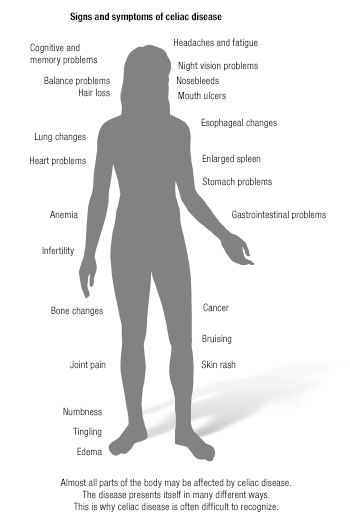Getting the facts about going gluten free
5/12/2022 by Rose Prissel, M.S., RDN, LD

If you're considering going gluten free, you will want to consider these facts into your decision.
Gluten is a protein.
It's found in wheat, barley, rye, triticale (a hybrid of wheat and rye), as well as wheat varieties like spelt, kamut, farro and durum. It's also found in products like bulgur and semolina.
A gluten-free diet is essential for managing the symptoms of certain conditions.

A gluten-free diet is essential to manage celiac disease, which damages the lining of the small intestine and prevents the normal absorption of nutrients. Such a diet also is essential to manage dermatitis herpetiformis, a skin disease marked by rashes and blisters that damages the intestine. People with nonceliac gluten sensitivity can have similar symptoms, but nonceliac gluten sensitivity won't damage the intestine.
For people with these diseases, just 50 milligrams of gluten — the amount in one small crouton — is enough to cause trouble. This small quantity means gluten needs to be treated like other food allergies by avoiding cross-contamination throughout processing at home and in restaurants. Those with nonceliac gluten sensitivity can be affected by varying amounts of gluten.
Symptoms include:
- Recurring abdominal pain.
- Chronic diarrhea or constipation.
- Joint pain.
- Unexplained infertility.
- Low bone density.
Celiac disease is not common.
About 2 million people in the U.S. have celiac disease and about 1 percent of people around the world have celiac disease. If you're concerned you might have a gluten intolerance, talk with your health care provider, who may refer you to a specialist.
Celiac disease can be diagnosed with a blood test. However, starting a gluten-free diet on your own can complicate the diagnostic process.
There are no recommended methods to test for nonceliac gluten sensitivity. Some health care professionals offer saliva, blood or stool testing, but these tests haven't been validated.
No evidence suggests that a gluten-free diet is healthier.
There is no evidence that a gluten-free diet is healthier, or that it will help you lose weight, give you more energy or treat autism.
Gluten-free diets can lack needed vitamins, minerals and fiber. For example, many gluten-containing products, such as breads and cereals are fortified with essential B vitamins. And whole wheat is a major source of fiber. While the availability of gluten-free products has skyrocketed, many of these products tend to be lower in B vitamins, folate and iron because they're not fortified, studies have also shown they can be lower in protein and fiber.
And just because bakery goods and snacks are gluten-free doesn't give you permission to eat as much as you like. They can be high in refined carbohydrates, fat, sugar, salt and calories — just like their gluten-containing counterparts.
Some foods are naturally gluten-free.
Some foods are naturally gluten-free, such as unprocessed meats, poultry, fish, eggs, unprocessed beans and nuts, fruits, vegetables, corn, rice, potatoes and most low-fat dairy products.
Going gluten-free is challenging.
Since gluten is in countless products from traditional breads, cereals, pastas, pizza and beer, to soy sauce, gravies, salad dressing, candy, corn chips and ice cream, going gluten free is a major challenge. You need to become a devoted reader of product labels, ingredient lists and menu information at restaurants.
For people with celiac disease, dermatitis herpetiformis or nonceliac gluten sensitivity, avoiding gluten and eating a healthy, well-balanced diet takes knowledge, awareness and persistence — every day. But eating gluten-free does get easier with time, and for people with these conditions, the rewards are worth it.
If you've been diagnosed with one of these conditions, your dietitian, as well as support groups, reputable apps and websites, and gluten-free cookbooks, are excellent resources for creating a healthy and enjoyable gluten-free diet. If friends or family are on a gluten-free diet, be respectful and don't just assume they're hopping on the latest fad diet.
Rose Prissel, M.S., RDN, LD, is a dietitian at Mayo Clinic in Rochester working in pediatric and adult nutrition, with a focus on preventive care, sports nutrition and weight management.
